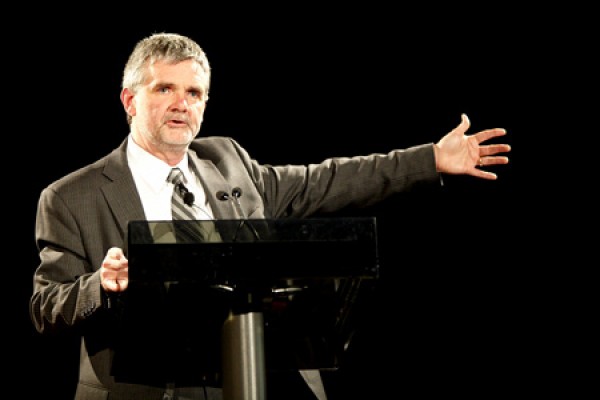 Bill Anderson delivers his talk in London.
Bill Anderson delivers his talk in London.
With rapid changes in communications technology, the distinction between the movement across international borders of ‘molecules’ and ‘bits’ is becoming increasingly blurred, according to Bill Anderson.
The molecules, of course, are the physical goods we ship across borders compared to the virtual information that gets shared around the world every day, says Dr. Anderson, an economic geographer and chair of the University’s Cross-Border Institute.
This year’s UWindsor representative in the Council of Ontario Universities’ Research Matters campaign, Anderson recently joined four other researchers from around the province at an event in London to discuss the subject of “What Matters Now.”
He argued that connectivity is the major issue of our day.
“Connectivity is basic to economic development but borders are one of the major impedances to connectivity,” he said.
To illustrate the theme, and how those lines between shipping goods and information are challenging the ways border typically operate, he pointed to how a simple part like an automotive turbine may be made and shipped.
Instead of shipping the part, he said, a manufacturer may design it with a rapid prototyping machine, ship the ‘information’ on how it’s made to another location and have it manufactured there.
“So the movement of molecules and the movement of bits is becoming more complex and interrelated,” he said.
Anderson was joined on stage for the event by researchers who discussed domestic terrorism, infectious diseases, neuroscience and mobility.
